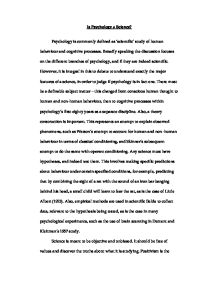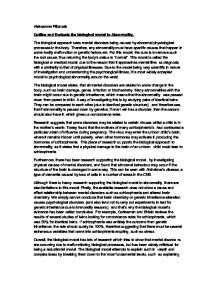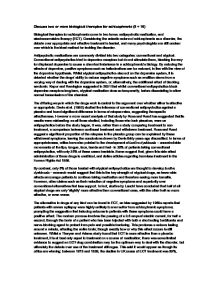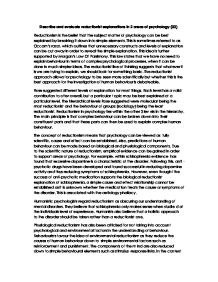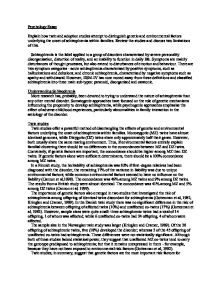What is Schizophrenia?
What is Schizophrenia?
Schizophrenia is an acute psychotic disorder affecting approximately 1% of the population. It is characterised by impairments in perception, cognition, affect, social interactions and psychomotor activity, and is considered an incredibly debilitating mental illness. People with schizophrenia are often unaware of the severity of their psychiatric disorder as their concept of reality is significantly impaired by the illness. This can also result in sufferers withdrawing from the outside world due to fear. There are two different types of schizophrenia that are differentiated by the symptoms experienced (Crow, 1980). Type 1 is defined by the addition of something to a person’s personality, also known as positive symptoms e.g. experiencing auditory/visual hallucinations. Type 2 is defined by the removal of something from an individual’s personality, also known as negative symptoms e.g. lack of emotion, movement or speech.
There also a number of different subtypes of schizophrenia that have been identified in diagnostic manuals (DSM-V, ICD-10). These include; paranoid schizophrenia, where patients display symptoms of delusions or auditory hallucinations; catatonic schizophrenia, where sufferers may have an extreme inhibition of motor functioning or too much motor activity; and undifferentiated schizophrenia, which encompasses individuals who display some symptoms of schizophrenia but do not fulfil the criteria for diagnosis of a particular subtype.
Learn more about schizophrenia...
- KEY EXPLANATIONS - Learn about the causes of schizophrenia and read our selection of essays.
- DISCUSSION - Get to know the key discussion points on schizophrenia in more depth.
- THERAPIES - Find out about the therapies that help deal with the symptoms of schizophrenia.
More essays on schizophrenia
What is Schizophrenia? Learn more about schizophrenia, it's diagnosis, symptoms and therapies.
Is Psychology a Science?
Psychology is commonly defined as 'scientific' study of human behaviour and cognitive processes. Broadly speaking the discussion focuses on the different branches of psychology, and if they are indeed scientific
Outline and Evaluate the biological model to Abnormality.
The biological approach sees mental disorders being caused by abnormal physiological processes in the body. Therefore, any abnormality must have specific causes that happen in some bodily malfunction or genetic factors etc.
Discuss two or more biological therapies for schizophrenia
Biological therapies for schizophrenia come in two forms: antipsychotic medication, and electroconvulsive therapy (ECT). Considering the eclectic nature of schizophrenia as a...
MENTAL HEALTH
There are a wide range of different terms that people use to describe mental health these are as follows: The World Health Organisation (WHO) have objectives and functions, which are there core commitment to mental health promotion.
Reductionism In Psychology
Reductionism is the belief that the subject matter of psychology can be best explained by breaking it down into simple elements.
Explain how twin and adoption studies attempt to distinguish genetic and environmental...
Schizophrenia is the label applied to a group of disorders characterised by severe personality...


